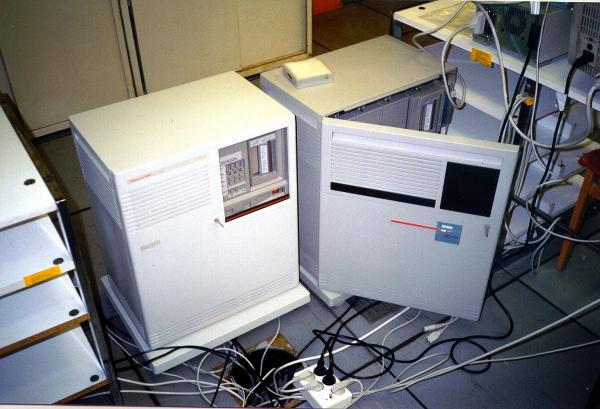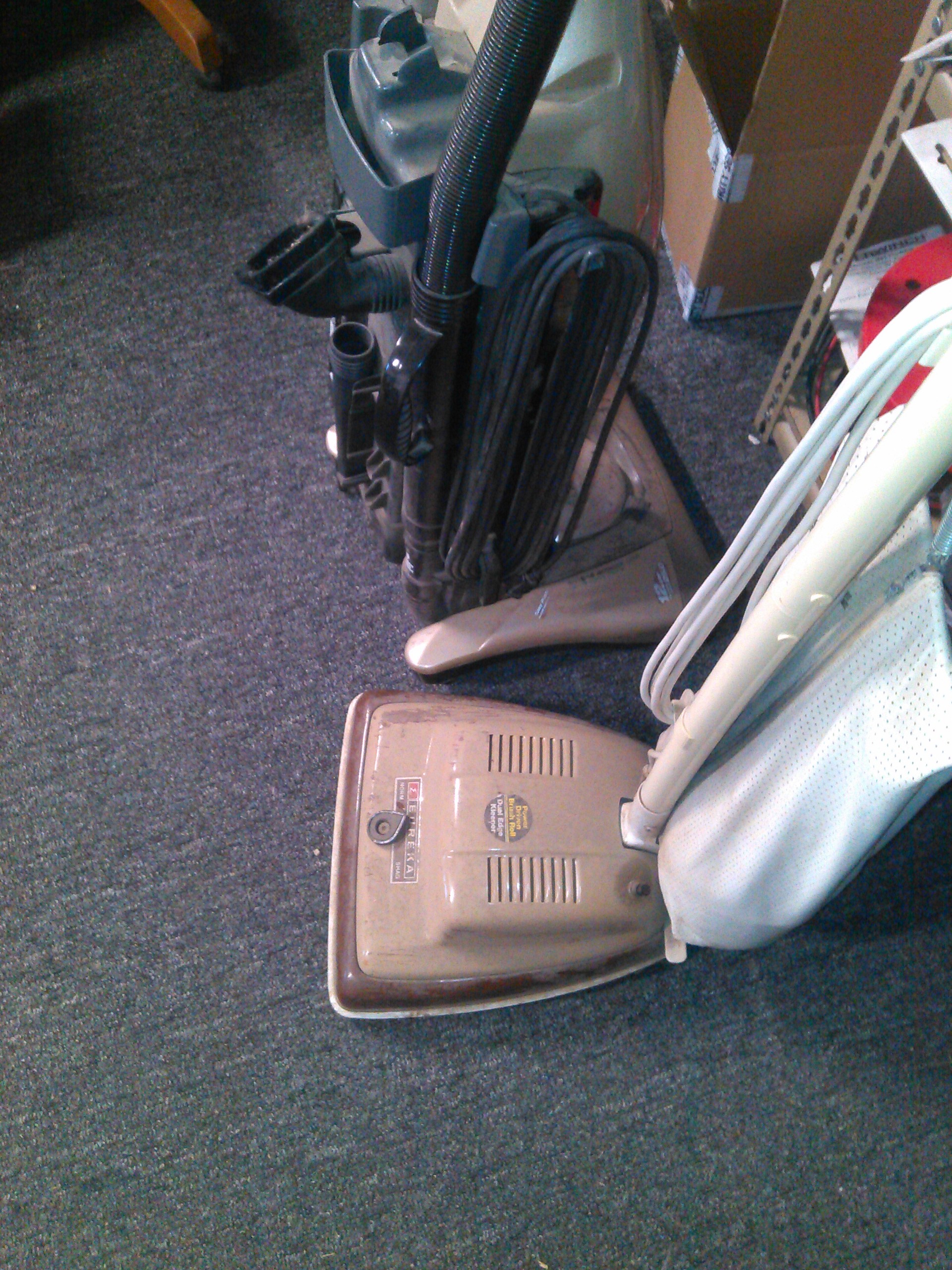Everybody thinks the power plug story is an Urban Legend or IT myth. When I answered this question about the strangest “computer bug” I had ever encountered, one of the stories I told was the power plug story. If you are old and been in IT a long time, you have encountered it.
I talk quite a bit about this in my latest book covering the history of IT and why things are the way they are. I’m sure many fingers will point at the low wage worker but the real problem is Disposable Management.
Power Plug Background
For the non-technical readers and non-Quora members, please allow me to re-use part of my Quora post to explain this.
In the early days of my career DEC midrange computer rooms looked much like this. There was a raised floor for air conditioning and cabling, some stuff hung on the walls. Gray or brown cabinets along one wall, black book shelves, and some tape racks. The rest of the room was the computers and tape drives.
All of this equipment used power plugs like this one.
I can’t even find an image of the deep gray metal outlet conduit. There used to be one track on the wall. Some of the larger rooms would have two tracks on the wall and one on the floor immediately behind the computers. Yeah, behind the equipment was just a mess. Cable everywhere. Sometimes they did it right and put the power under the floor, at least I’m told they did. I never worked at such a place.
The conduit was something like 4-6 inches deep because it had to hold the receptacle for these big plugs. They were anywhere from 20-60 AMPS depending on the equipment. Lots of heavy wire in those things.
You would only have one or two standard plugs in that mess. One would be near the printers so operators could plug in the anti-static vacuum to clean paper dust out of the printers. Another would be behind the computers if your service contract mandated you provide an outlet for the technicians to plug in a work light. There was no need.
Then it happened
The number of companies willing to put in a special computer room with its own air conditioning and UPS was finite. It wasn’t just the expense of the room, but all of the terminals had to be permanently wired through the building. You couldn’t “redecorate” by moving desks around because the terminal wire had to be where it was.
Companies wanted to be able to move their computers around. They wanted “departmental” computer systems capable of running 10-20 users in a normal office environment. When one department was finished with something they wanted to be able to move the computer to another. Of course a few “moved out the door” over the weekend, then they suddenly wanted to chain it down, but that is another story.
I’m not making this up. You will note that MicroVAX II has wheels. The MicroVAX 3600 I had also had wheels. Both of these also plugged into a standard wall outlet. Hopefully you paid attention to the first part of this post.

This became a common sight in computer rooms when the big boxes got replaced with the little wheeled boxes. You will remember I told you most computer rooms only had two standard outlets. One had to schedule both computer down time (usually a holiday) and an electrician’s time (not usually available on holidays) to replace the big round 20-60 AMP receptacles with standard 15 AMP outlets, so a power strip with a lot of stuff plugged into it became a common sight.
Power plug practice became problem
The cleaning crew (in many cases non-native language speakers) had always been allowed to unplug whatever was in the nearest outlet to run their equipment. Worst case, it was the vacuum someone forgot to put away or a lamp. No biggie.
Once it started being the power strip that had your four primary computers plugged into it, the problem was quickly realized. If your computers were drawing 12 AMPs and the other open outlet on the wall was on the same circuit their 6 AMP equipment also became a problem when it tripped the breaker and took out everything.
This lesson was learned in computer room after computer room around the world. The story seems like an Urban legend because it happened so many times. It was almost as common as someone backing into a car when backing out of a parking space.
Computer rooms weren’t the only ones to repeat this story. Every lab environment around the world has failed to learn the lesson.
The only people allowed to enter any lab must have already completed the degree training required to work there. You don’t send in the lowest wage worker on your payroll.
Why am I beating this horse?
1,900 doses of Moderna vaccine destroyed after cleaner unplugs freezer in Boston.
Toto said, the freezer at the Boston pharmacy “was in a secure location and had an alarm system installed. The plug was found loose after a contractor accidentally removed it while cleaning.”
When someone took down a corporate system it was annoying. Could even be funny if you weren’t the someone who took it down. Outright hilarious when cookie cutter MBAs busted a gasket about it because they are the “cut costs” chanting chickens who decided someone without an IT degree should be allowed in the computer room because they were “priced right.”
Today we see what MBAs and “priced right” gets you. Potentially more 19,000 lives lost. We don’t have a good way of tracking who would have gotten those doses, which ones contracted the disease, and who else they will infect before they themselves die.
Someone with a degree in that field would never unplug that freezer. Someone who is “priced right” will think “Oh, I’ll plug it back in when I’m done. It won’t hurt anything.” Then they will pull the power plug and continue on with their work. Usually they even remember to plug things back in.
How do I know that?
Because that’s exactly what happened with the MicroVAX computers. They would crash every night the cleaning crew would come in (usually weekly) and when off-hours support showed up everything looked fine. The machine was still plugged in, had power, no reason for the crash could be found. It took months to track these things down.
